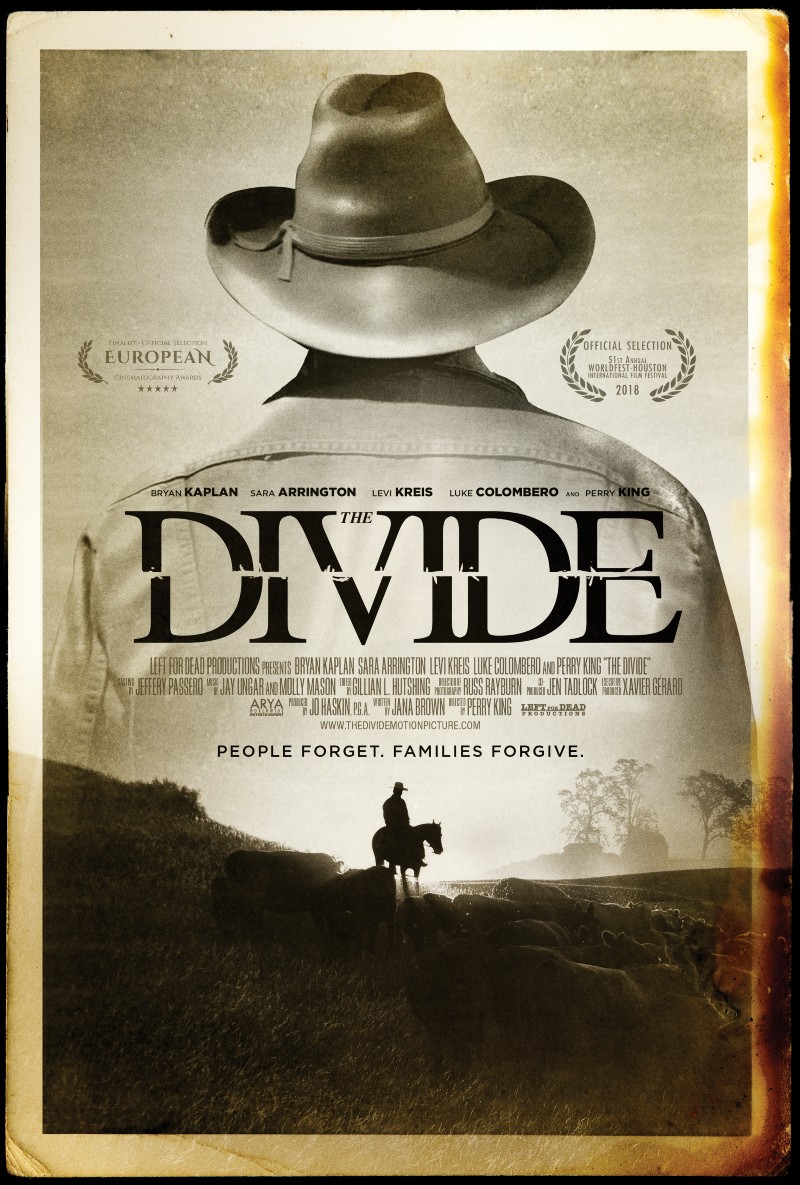
By Reneé Gasber
Chatham University recently screened Perry King’s new indie film “The Divide” in Eddy Theatre. It was presented by the Film, Art and Humanities programs.
Set in drought-ridden California in 1976 (and filmed on King’s own cattle ranch), “The Divide” follows Sam Kincaid (played by King), his estranged daughter Sarah (Sara Arrington) and his new ranch hand Luke Higgins (Bryan Kaplan).
Sam offers Luke a place to stay in exchange for help on the ranch. In time, Luke notices Sam having nightmares and a faulty memory, and requests help from Sarah to take care of him. Though reluctant, she and her son C.J. arrive at the ranch, and Luke begins to learn what drove her away from her father, as well as what it really means to be a family.
Westerns aren’t usually what I like to watch. This film, however, is enjoyable. It didn’t have many of the recognizable tropes you’d expect from a western: no gun fights, no wanted posters, no damsel in distress, no big chase scene, no racist indigenous caricatures, no cheesy romantic subplot. The fact that it’s set in 1975 is different, too, as most westerns take place in the mid to late 1800s. Aside from the ranch setting and that it’s done in black and white, it doesn’t feel all that much like a western. It’s more like a family drama.
Here are where the spoilers come in …
The surface issue is Sam’s decaying memory. For most of the beginning of the film, Sam is forgetful, but still functional. Then he suddenly snowballs into forgetting nearly everything all the time. For entertainment’s sake, the film could use a faster pace to start off with. The plot is largely tied to Sam’s fading memory, so with so little of that at the start, there’s not much to keep audiences invested early on.
Once it does pick up, it really picks up. When Luke finally comes in Sam’s house to call for Sarah, we get to see just how bad Sam’s memory actually is. Nearly every inch of the house is covered in notes with reminders for Sam. It’s heartbreaking to see that this man has been suffering for so long. He even has notes by the phone reminding him that Sarah doesn’t want to talk to him. This scene was especially chilling.
The other scene on par with that one is the “the barn scene,” where the source of Sarah’s animosity toward her father is revealed. The way it’s set up is reminiscent of a horror film. The unsteady camera focuses on Sam’s hand opening the barn door, and then there’s a quick flash of Sarah’s ex-lover dangling from the beams of the barn by the neck. Sam drops to his knees and spills everything as Luke kneels beside him. Nearly all the tension comes to a head and seeps out in a single scene of guilt and vulnerability. Yet it’s in no way pitiful or uncomfortable to watch. It was absolutely stunning to see for the first time.
The film is about characters who put emphasis on familial bonds. Sarah’s character is developed through her grief and anger towards her father. Both her and Sam’s healing comes through Sarah finally discovering the truth and forgiving Sam. The other half of the family drama concerns Luke, who never really had a family. But now, he’s accepted by the Kincaids.
I walked into Eddy Theatre thinking I was going to spend two-ish hours trying not to fall asleep, but instead I was treated to a touching film that subverted all my expectations. I was thoroughly impressed. Was it perfect? No, but it was pretty close to it. You can find more information about the film online at thedividemotionpicture.com.

